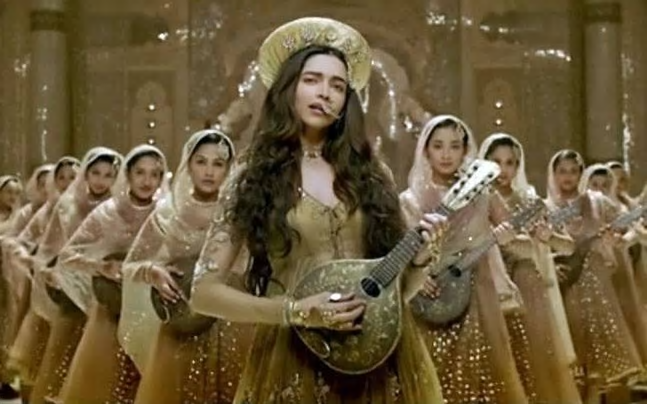
Film Matters: Please tell us about your article that is being published in Film Matters.
Lubna Umar: My article explores Sanjay Leela Bhansali’s films, Bajirao Mastani and Padmaavat, to show how aesthetics in Bollywood films play a major role in “re-Orientalizing” India. The article uses postcolonial theory to critically analyze how the politics of aesthetics positions societal groups in a strict hierarchy, based on morality and nationalism. While watching these films, I recognized the recurring theme of demonizing and otherizing Muslim characters, and upon initial research, I found out that more film scholars discovered the same. I felt the need to explore this idea even further and showcase how it affects the Muslim spectator.
FM: What research and/or methodologies do you incorporate in your article?
LU: I merged Mulvey’s theory of the gaze, spectator theory, and the postcolonial writings of Bhabha and Said to analyze the aesthetic effects Bhansali uses in the films. The patriarchal tools of traditional filmmaking and the hegemony of colonialism are very similar, when you see how they use aesthetics and representation to exercise power over a group.
FM: Describe the original context for/when writing this article while an undergraduate student.
LU: I wrote this paper for my Aesthetics class. I instantly knew that I wanted to analyze a film, because I feel like films play a huge part in creating sociopolitical narratives in societies. To merge sociopolitical theory with aesthetics and film was a very exciting idea.
FM: How has your department and/or institution supported your work in film and media?
LU: My department at Laurier has always supported me, by allowing me to analyze films and media that appeal to me as a budding scholar. The department always ensures that scholars get access to the best research materials.
FM: How has your faculty mentor fostered your advancement as a film scholar?
LU: Dr. [Andrea] Austin has been extremely supportive, using her rich knowledge on aesthetics to inspire us to explore interesting areas in the field. She allowed me to analyze Bollywood movies and showed her support throughout the course by giving her valuable feedback.
FM: How has the Film Matters editorial and publication process impacted the development/evolution of your article?
LU: The peer review was very helpful, and it allowed me to improve my article and make my analysis clearer and more precise. I deeply appreciate the Film Matters editorial process. As a budding scholar, being part of such a great publishing journey really helps you understand how your contribution is taken on by academic journals.
FM: What audience do you hope to reach with your Film Matters article and/or what impact do you hope it has on the field of film studies?
LU: I plan to reach not just an audience of film and literary scholars, but also Bollywood’s diverse audience. I believe my article attempts to remove the glossiness of Bollywood and unearths a stark reality. When you realize how social hegemony is interwoven in films, you become more aware of the themes present in every aspect of filmmaking, from costumes, to dialogues, lyrics, etc.
FM: What are your future plans?
LU: I want to continue writing fictional and nonfictional literature. My area of focus will always be postcolonial theory, and this definitely includes more film analysis. We all live in a postcolonial world where neo-colonial issues are evident, now more than ever, and this makes it important for us to deeply understand the art we regularly consume.
Author Biography
Lubna Umar graduated from Wilfrid Laurier University with an MA in English. She continues to explore her passion for postcolonial writings through her literary pieces. She recently published a short story, called “Departed” in The Bangalore Review.







































